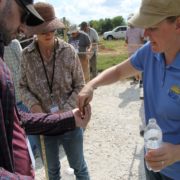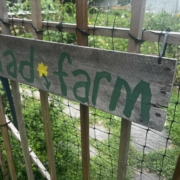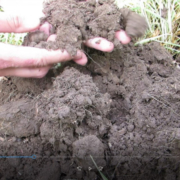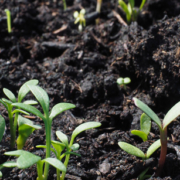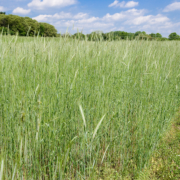The Power of Worms: Helpful Tips for Composting Success
 Print This Post
Print This Post
By Nina Prater, NCAT Agricultural Specialist
I love talking with people who are passionate about what they do. That energy and excitement is always so inspiring, and that was definitely the case recently when I talked with Matt Casteel, owner of Wurmworks, a composting business in Jackson, Mississippi. He works in partnership with local organizations to transform food waste into a resource for local farmers. Matt makes worm compost, thermophilic compost, compost extract, and compost tea.
As a soil specialist I often wax rhapsodic on the benefits of compost to the soil – good compost can improve the soil by increasing soil organic matter, microbial diversity, and supplying slow-release plant nutrients. I learned a lot more details about the composting process while interviewing Matt for ATTRA’s Voices from the Field podcast. We talked about how to make good compost, what to look for when purchasing compost, and the importance of keeping food waste out of the landfill and composting it properly, and much more. We even got into Greek mythology for a minute, so, you might say it was a wide-ranging conversation.
Most people are familiar with thermophilic composting, also known as hot composting, where you pile “browns” (carbon rich materials) and “greens” (nitrogen rich materials) together. That mixture then heats up internally from microbial activity. Worm composting is an entirely different form of composting, and it is becoming more and more popular around the country. Matt shared some excellent tips and guidance for people interested in getting started in worm composting.
Here are some helpful pointers for worm composting success:
- Especially when first establishing your worm bin, don’t overfeed your worms. This will help avoid fruit flies and other insects.
- If you do overfeed food scraps, you can balance it out by adding more bedding material like shredded paper.
- Most newspaper and cardboard can be used as bedding – just be sure to remove any tape or glossy color print.
- To keep worms from escaping a bin, shine a light on it from above and the worms will burrow down to stay in the dark.
Worms are a great way to turn food waste and paper scraps into a rich, biologically active soil amendment that can add microbial biodiversity to soil. Instead of importing fertilizers, worm composting can enable you to create your own soil amendments on-site while utilizing food waste that might otherwise end up in a landfill.
Simply put: Worms are soil superheroes. I hope you will listen to Episode 210. Harnessing the Power of Worms in Composting to hear more from Matt’s wealth of knowledge about composting and worms. I know it helped inspire me to get more proactive about my admittedly lackadaisical composting efforts. I’m going to put some worms to work, and I hope you will too!
This blog is produced by the National Center for Appropriate Technology through the ATTRA Sustainable Agriculture program, under a cooperative agreement with USDA Rural Development. ATTRA.NCAT.ORG.


